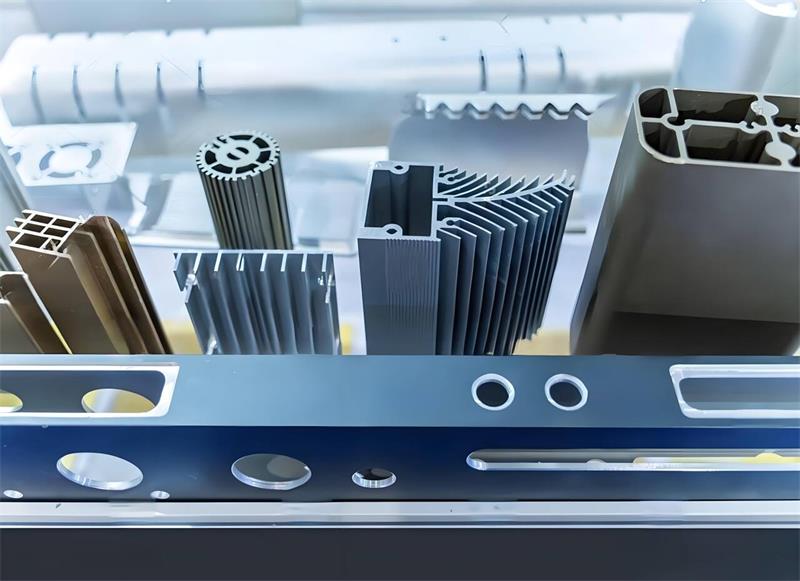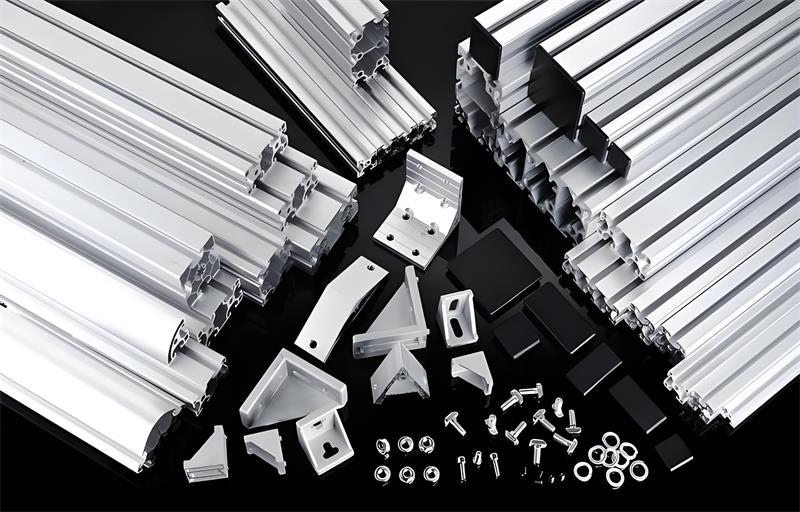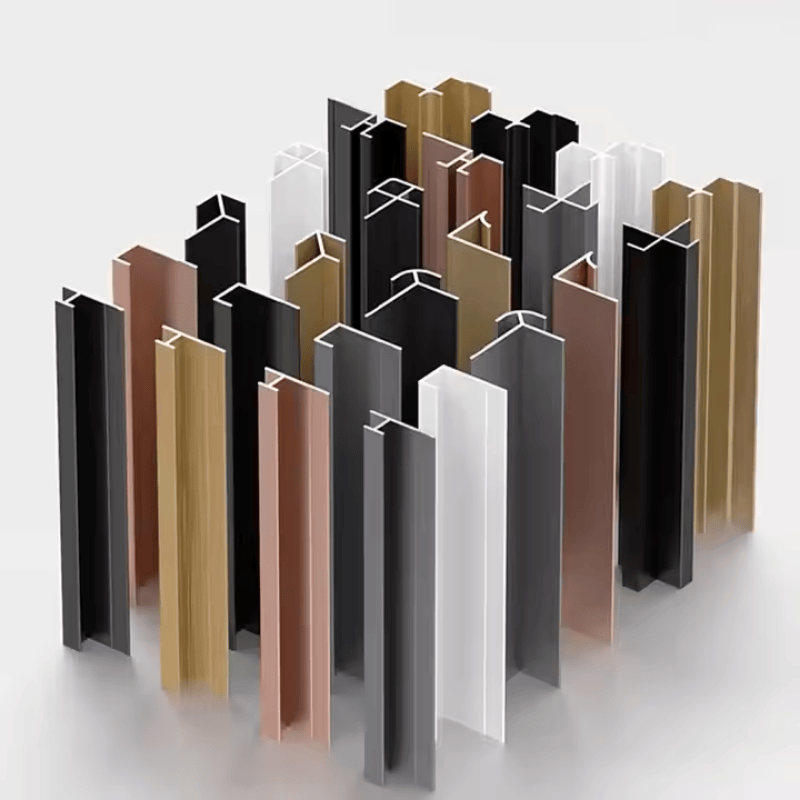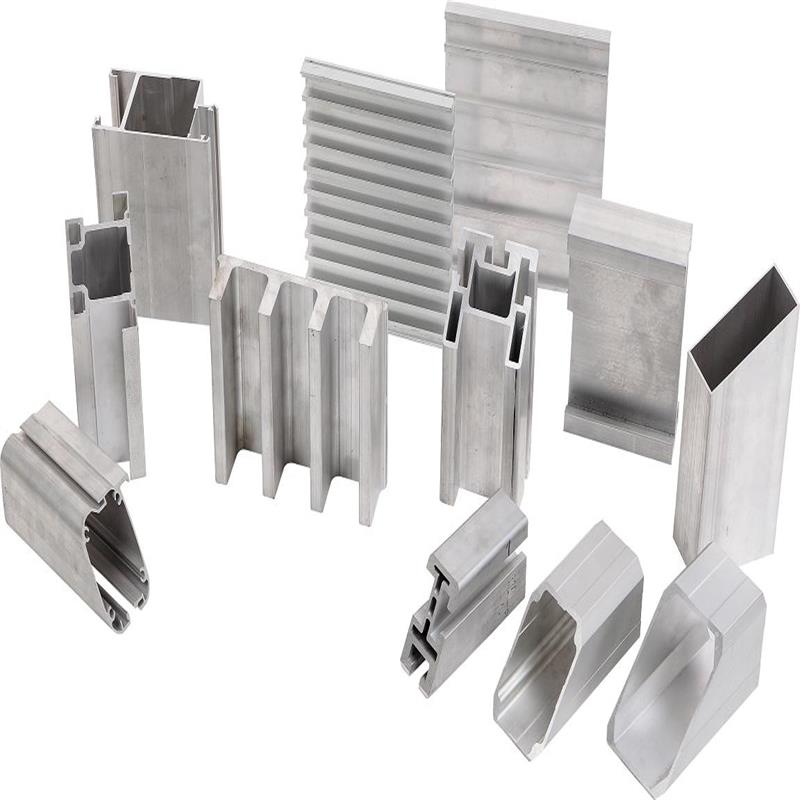Energy-Efficient Aluminum Alloy Windows: Save Money and Stay Comfortable
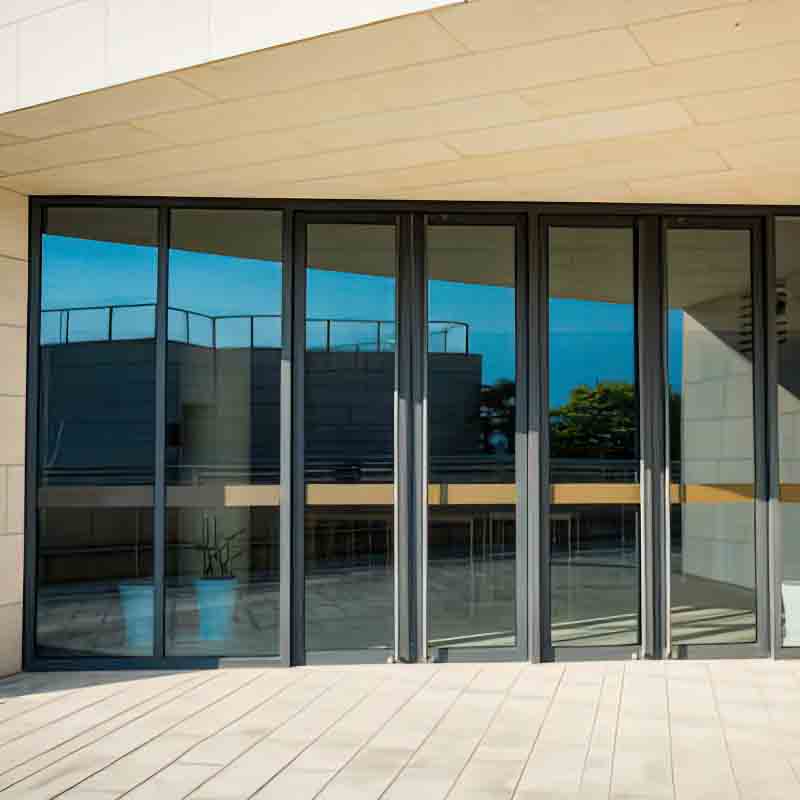
Outline
Introduction: The increasing concern about energy costs leads to the importance of energy-efficient aluminum alloy windows.
Analysis of Aluminum Profiles: Introduce its definition, extrusion process and role in windows.
Energy-saving Characteristics: The energy-saving principles of thermal break, glass and sealing systems.
Comfort Advantages: Benefits in terms of temperature, noise and durability.
Customization Solutions: Meeting different needs and design flexibility.
Cost-effectiveness: Long-term investment and property value appreciation.
Selection Key Points: Considering factors such as climate and professional installation.
Conclusion: Emphasize the advantages and recommend Aluinno products.
Introduction
In today's world, the increasing cost of energy has become a significant concern for homeowners and businesses alike. As we strive to reduce our carbon footprint and lower our energy bills, one area that often goes overlooked is the choice of windows. Aluminum alloy windows, particularly those designed with energy efficiency in mind, offer a remarkable solution that not only helps save money but also enhances the comfort of any living or working space.
Windows play a crucial role in the energy efficiency of a building. Traditional windows can be a major source of heat loss in the winter and heat gain in the summer, forcing heating and cooling systems to work overtime and driving up energy costs. Energy-efficient aluminum alloy windows, on the other hand, are engineered to minimize these inefficiencies, providing a more stable indoor climate while reducing the strain on energy-consuming appliances. In this article, we will explore the various aspects of these windows, from the aluminum profiles that form their foundation to the advanced technologies and custom options available, all of which contribute to significant energy savings and enhanced comfort.
Understanding Aluminum Profiles in Windows
1. What is Aluminum Profile
An aluminum profile is the structural component that forms the frame of an aluminum alloy window. It is created through the extrusion process, where heated aluminum alloy is forced through a die to achieve a specific shape. These profiles are not only lightweight but also possess remarkable strength, making them an ideal choice for window construction. Aluminum, as a base metal, is often alloyed with elements such as magnesium, silicon, and copper to enhance its properties. For instance, magnesium can improve the alloy's strength and corrosion resistance, while silicon helps with the extrusion process and enhances the alloy's heat treatability.
The aluminum profile in a window provides the necessary support and stability. Its design determines the window's structural integrity, ensuring that it can withstand the forces of wind, rain, and everyday use. Different profiles are available in various shapes and sizes, allowing for customization based on the specific requirements of a building. Square profiles, for example, are commonly used in modern architectural designs for their clean and simple aesthetic, while rectangular profiles offer more surface area for better insulation and are often favored in larger window installations.
2. The Extrusion Aluminium Process
The extrusion of aluminum is a highly precise manufacturing process that plays a vital role in creating high-quality window profiles. During extrusion, the aluminum alloy billet is heated to a specific temperature to make it malleable. It is then pushed through a carefully designed die under high pressure. This die imparts the desired shape to the aluminum, which emerges as a continuous length of profile. The extrusion process allows for the production of complex shapes with tight tolerances, ensuring that each window frame fits together precisely.
Extrusion also enables the integration of additional features into the aluminum profile. For example, channels can be incorporated to hold the glazing in place securely, and grooves can be added for easy installation of weatherstripping and other accessories. This level of customization during the extrusion process is what makes aluminum profiles so versatile and suitable for a wide range of window designs.
Energy-Saving Features of Aluminum Alloy Windows
1. Thermal Break Technology
One of the key energy-saving features of modern aluminum alloy windows is thermal break technology. This innovation involves the insertion of a low-conductivity material, such as a plastic or fiberglass strip, within the aluminum profile. This thermal break creates a barrier that significantly reduces the transfer of heat between the inside and outside of the building. In the winter, it helps to keep the warm air inside, preventing it from escaping through the window frame. In the summer, it blocks the heat from entering, reducing the need for excessive air conditioning.
The thermal break effectively separates the interior and exterior parts of the aluminum profile, minimizing the formation of thermal bridges. This results in a more energy-efficient window system that can contribute to substantial savings on heating and cooling costs over time. Windows equipped with thermal break technology can have U-values (a measure of heat transfer) as low as 1.0 W/(m²K) or even lower, depending on the specific design and materials used.
2. Advanced Glazing Options
The type of glazing used in aluminum alloy windows also plays a critical role in energy efficiency. Low-E (low emissivity) glass is a popular choice. This glass has a special coating that reflects infrared heat back into the room, while still allowing visible light to pass through. This means that in the winter, the heat generated indoors is retained, and in the summer, the heat from the sun is kept out.
Double or triple glazing is another effective option. These consist of two or three layers of glass separated by air or inert gas-filled spaces. The multiple layers of glass and the insulating gas work together to increase the window's thermal resistance. Argon and krypton are commonly used inert gases, as they have lower thermal conductivities than air. Double-glazed windows can reduce heat transfer by up to 50% compared to single-glazed windows, while triple-glazed windows offer even greater insulation performance.
3. Superior Sealing Systems
A well-designed sealing system is essential for maximizing the energy efficiency of aluminum alloy windows. High-quality weatherstripping materials, such as EPDM (ethylene propylene diene monomer) rubber or silicone, are used to create a tight seal around the window frame. This prevents air leakage, which can account for a significant portion of a building's energy loss.
The sealing system also helps to keep out dust, moisture, and noise, enhancing the overall comfort and durability of the window. In addition to the perimeter seal, proper sealing between the glass and the frame is crucial. This is achieved through the use of glazing seals that are designed to maintain their integrity over time, even under varying weather conditions.
Comfort Benefits of Aluminum Alloy Windows
1. Temperature Regulation
Energy-efficient aluminum alloy windows contribute to a more stable indoor temperature. By reducing heat transfer, they help to maintain a consistent temperature throughout the day and night, eliminating the uncomfortable temperature fluctuations that can occur with less efficient windows. This means that in the winter, you can enjoy a warm and cozy living space without having to constantly adjust the thermostat, and in the summer, the indoors remain cool and pleasant.
The improved temperature regulation not only enhances comfort but also reduces the risk of mold growth and other moisture-related problems that can occur when there are large temperature differences between the inside and outside of a building.
2. Noise Reduction
In addition to their energy-saving properties, aluminum alloy windows can also provide effective noise reduction. The combination of the window's construction, including the thickness of the glass and the quality of the sealing, helps to block out external noise. This is especially beneficial for homes and offices located in noisy areas, such as near busy roads or airports.
The laminated or double-glazed glass used in these windows can absorb and reflect sound waves, reducing the amount of noise that penetrates the interior. This creates a quieter and more peaceful environment, allowing for better concentration and relaxation.
3. Durability and Low Maintenance
Aluminum alloy windows are known for their durability. The aluminum profiles are highly resistant to corrosion, ensuring that the windows maintain their structural integrity and appearance over time. Unlike some other window materials, aluminum does not rot, warp, or crack easily, even in harsh weather conditions.
The low maintenance requirements of aluminum alloy windows also add to their comfort factor. They can be easily cleaned with a simple solution of water and mild detergent, and the frames do not require regular painting or staining. This saves both time and money in the long run, making them a practical choice for busy homeowners and property managers.
Custom Aluminum Solutions for Your Windows
1. Tailoring to Your Needs
One of the significant advantages of aluminum alloy windows is the ability to customize them to meet specific requirements. Custom aluminum profiles can be designed to fit any architectural style or building design. Whether you have a modern, minimalist home or a traditional, ornate building, aluminum windows can be tailored to complement the aesthetic.
For example, in a historical building restoration project, custom aluminum windows can be designed to mimic the look of the original windows while incorporating modern energy-efficient features. In a contemporary design, unique shapes and sizes of windows can be created to maximize natural light and views, all while maintaining energy efficiency.
2. Design Flexibility
Aluminum allows for a wide range of design options in terms of shape, size, color, and surface finish. The extrusion process can produce profiles in almost any conceivable shape, from curved to angular, enabling architects and designers to realize their creative visions.
In terms of color, aluminum can be anodized or powder-coated to achieve a variety of finishes. Anodizing not only provides a durable and corrosion-resistant surface but also allows for the addition of color. Powder coating offers a wide range of colors and textures, from smooth and glossy to matte and textured, giving you the freedom to choose a finish that matches your interior and exterior decor.
Cost-Savings Beyond Energy Bills
1. Long-Term Investment
While the initial cost of energy-efficient aluminum alloy windows may be higher than that of some traditional windows, they offer significant long-term savings. The reduced energy consumption translates into lower utility bills month after month. Over the lifespan of the windows, which can be several decades with proper maintenance, the savings can be substantial.
Moreover, the durability of aluminum means that you are less likely to incur the cost of frequent window replacements. This makes energy-efficient aluminum alloy windows a wise investment that pays off in the long run.
2. Increased Property Value
Installing energy-efficient aluminum alloy windows can also increase the value of your property. In today's environmentally conscious market, homebuyers and tenants are increasingly looking for energy-efficient features. A building with high-quality, energy-efficient windows is more attractive and can command a higher price or rental rate.
This added value not only benefits homeowners when it comes time to sell but also gives businesses an edge in the commercial real estate market. Energy-efficient upgrades like aluminum alloy windows can enhance the overall desirability and competitiveness of a property.
Choosing the Right Aluminium Window for Your Home
1. Consider Your Climate
When selecting aluminum alloy windows, it is essential to consider the local climate. In colder regions, windows with better insulation properties, such as those with advanced glazing and thermal break technology, are crucial to keep the heat inside. In warmer climates, the focus should be on windows that can effectively block solar heat gain while still allowing natural light.
For areas with high humidity, proper ventilation features should also be considered to prevent condensation and moisture-related problems.
2. Quality Matters
Not all aluminum alloy windows are created equal. It is important to choose windows from a reputable manufacturer that adheres to strict quality standards. Look for products that have been tested and certified for energy efficiency, such as those with ENERGY STAR ratings in the United States or similar certifications in other countries.
Check the quality of the aluminum profiles, the glazing, and the sealing systems. High-quality components will ensure better performance and longer lifespan.
3. Working with Professionals
To ensure the proper installation of your aluminum alloy windows, it is advisable to work with experienced professionals. Incorrect installation can undermine the energy efficiency and performance of even the highest-quality windows. A professional installer will know how to properly seal and fit the windows, ensuring that they function as intended.
They can also provide valuable advice on choosing the right window design and size for your specific needs, taking into account factors such as the orientation of the building and the surrounding environment.
Conclusion
Energy-efficient aluminum alloy windows offer a multitude of benefits, from significant energy savings to enhanced comfort and increased property value. The advanced features, such as thermal break technology, high-quality glazing, and superior sealing systems, combined with the versatility and durability of aluminum profiles, make them an excellent choice for any building.
When considering upgrading your windows, remember to choose a reliable manufacturer and installer. At Aluinno, we are dedicated to providing top-quality aluminum alloy windows that meet the highest standards of energy efficiency and design. Our team of experts can work with you to create custom solutions tailored to your specific needs, ensuring that you enjoy the benefits of energy-efficient windows for years to come. Whether you are building a new home or renovating an existing one, Aluinno's aluminum alloy windows are the ideal choice for saving money and staying comfortable.


 En
En



 Location:
Location:
